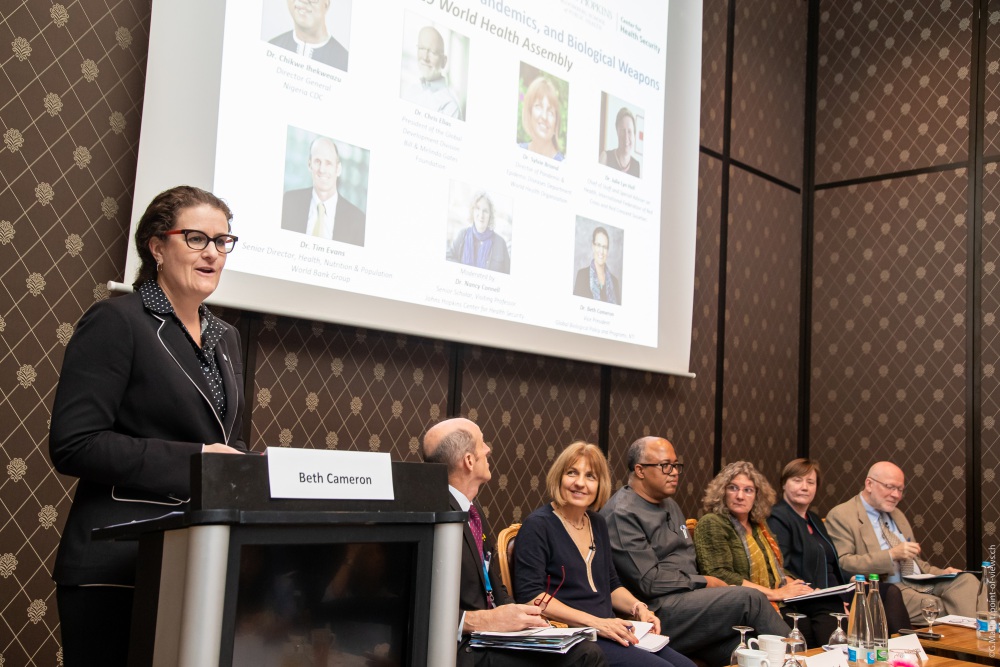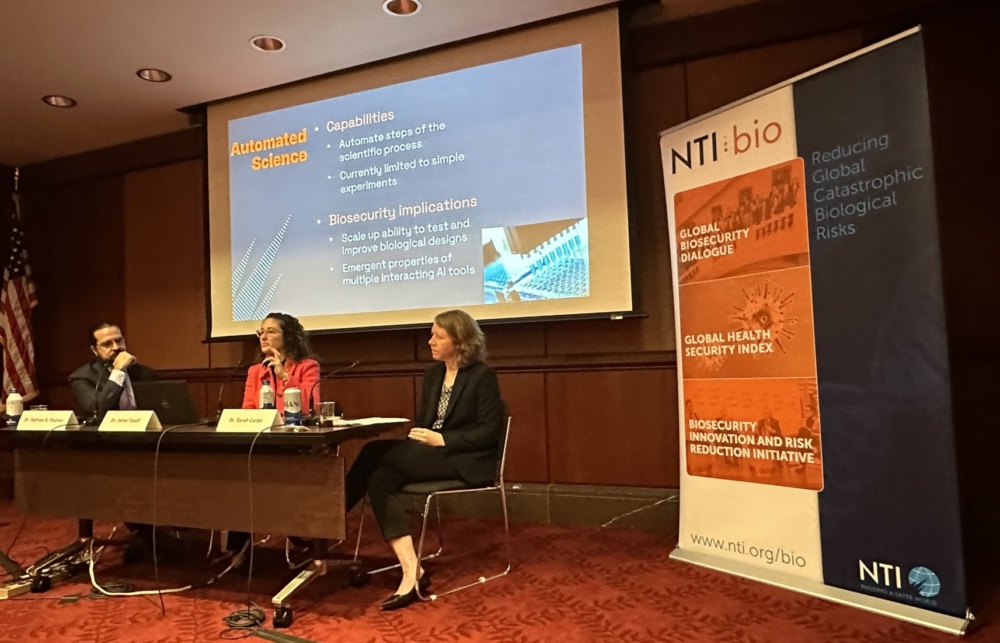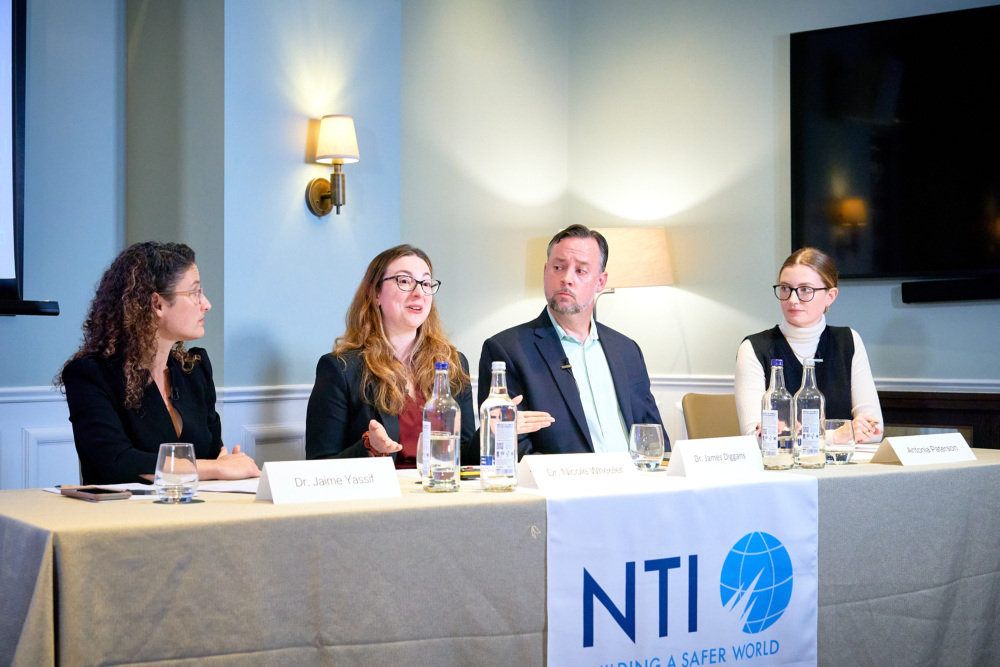
Michelle Nalabandian
Program Officer, Global Biological Policy and Programs
On May 22, NTI experts Beth Cameron and Michelle Nalabandian
joined government officials and experts from around the world in
Geneva at the 72nd World Health Assembly (WHA), where NTI
co-organized
a side event on preventing future high-consequence biological events.
The breakfast event, “Ebola, Pandemics, and Biological
Weapons,” was held in partnership with the Johns Hopkins Center for Health
Security, the Georgetown University
Center for Global Health Science and Security, and the Future of Humanity Institute. It brought
together global experts for a complex and provocative discussion on the
following three scenarios that demonstrate the increasing risk of a
high-consequence biological event:
The panel speakers included:
Panelists spoke candidly about their national, regional, and
global perspectives on these scenarios, as well as recommendations for ways to
prevent and deter catastrophic biological risks, including deliberate events,
of the future.
Learn more about the work of NTI’s Global Biological Policy
and Programs team here.
Sign up for our newsletter to get the latest on nuclear and biological threats.
NTI | bio convened a workshop on “Disincentivizing State Bioweapons Development and Use” a week ahead of the Biological Weapons Convention Working Group meetings in Geneva, Switzerland.
NTI | bio hosted a lunchtime event on Capitol Hill to discuss how Congress and other decisionmakers can take action to mitigate emerging risks associated with AI-bio capabilities.
Amid significant advances in artificial intelligence (AI), a new NTI | bio report recommends urgent action and oversight by governments, industry, and the scientific community to reduce risks associated with AI-enabled capabilities to engineer living systems.



